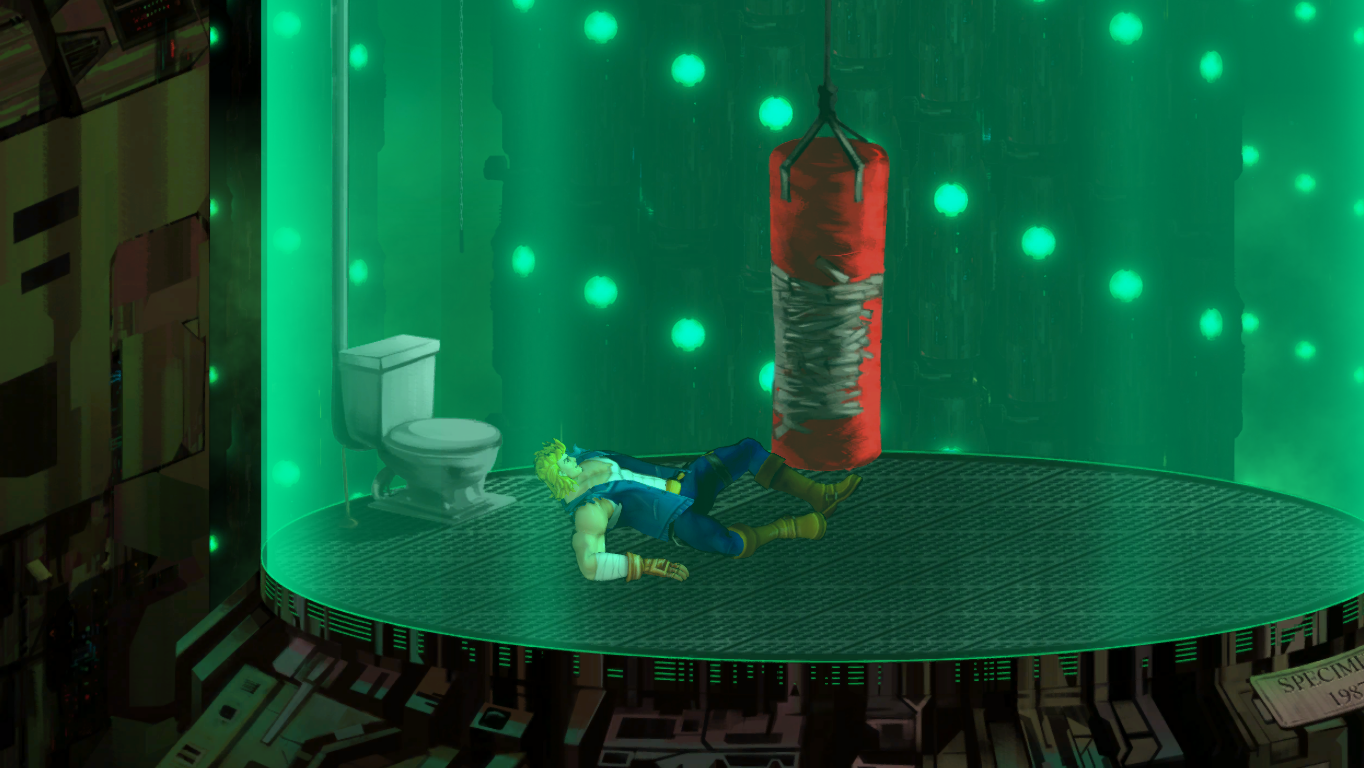
Those of you with fond memories of Contra 4's remix treatment will find the same style prevalent for Neon's remixes, as they're done by the same composer (one Jake "virt" Kaufman), except this time, there's no underpowered Nintendo DS sound chip to deal with. One-third remixes of iconic tunes from the first couple of Double Dragon games, one-third arcade-style background music, and one-third original lyrical songs, the soundtrack is expansive and bursting with love and care evident from first game boot. The absolute first thing players will notice is the glorious soundtrack. And there's still reason to keep playing afterward.

However, once those two stages are over, the game - for lack of a better term as well as a desire to avoid spoilers - goes to Crazytown in the absolute best way possible and ramps up from there, climaxing in a final act and ending sequence that rivals the Portal games in its self-aware hilarity. The first two stages look and play as they did in the old days, save for upgraded visuals and an ear-massaging soundtrack (both of which we'll touch on soon). Seconds later, the Lee Brothers, Billy and Jimmy - who've taken more than a few pages out of the Wyld Stallyns' vocabulary book since the last time we saw them - lament their kidnapped main squeeze and set off to rescue her, punching and kicking everything in their path. Marian gets punched in front of a garage and carted off one random day. If you played the original few Double Dragon games in the arcades or on the consoles of the day, then the way Neon starts out will be nostalgically old hat. Much like this spring's Kid Icarus: Uprising, Double Dragon Neon emerges as one of 2012's most satisfying and humorous action games, with "surprise sleeper" written all over it. Fortunately, appearances can be deceiving, and a little polish can go a long way. Among series fans, reactions to promotional material ranged from cautious optimism to outright revulsion, because, well, look at it.

For the 25th anniversary of the Double Dragon series, publisher Majesco and developer Wayforward Technologies teamed up with original series director Yoshihisa Kishimoto to bring the world not a sequel, not a reboot, but a reimagining of sorts.


 0 kommentar(er)
0 kommentar(er)
